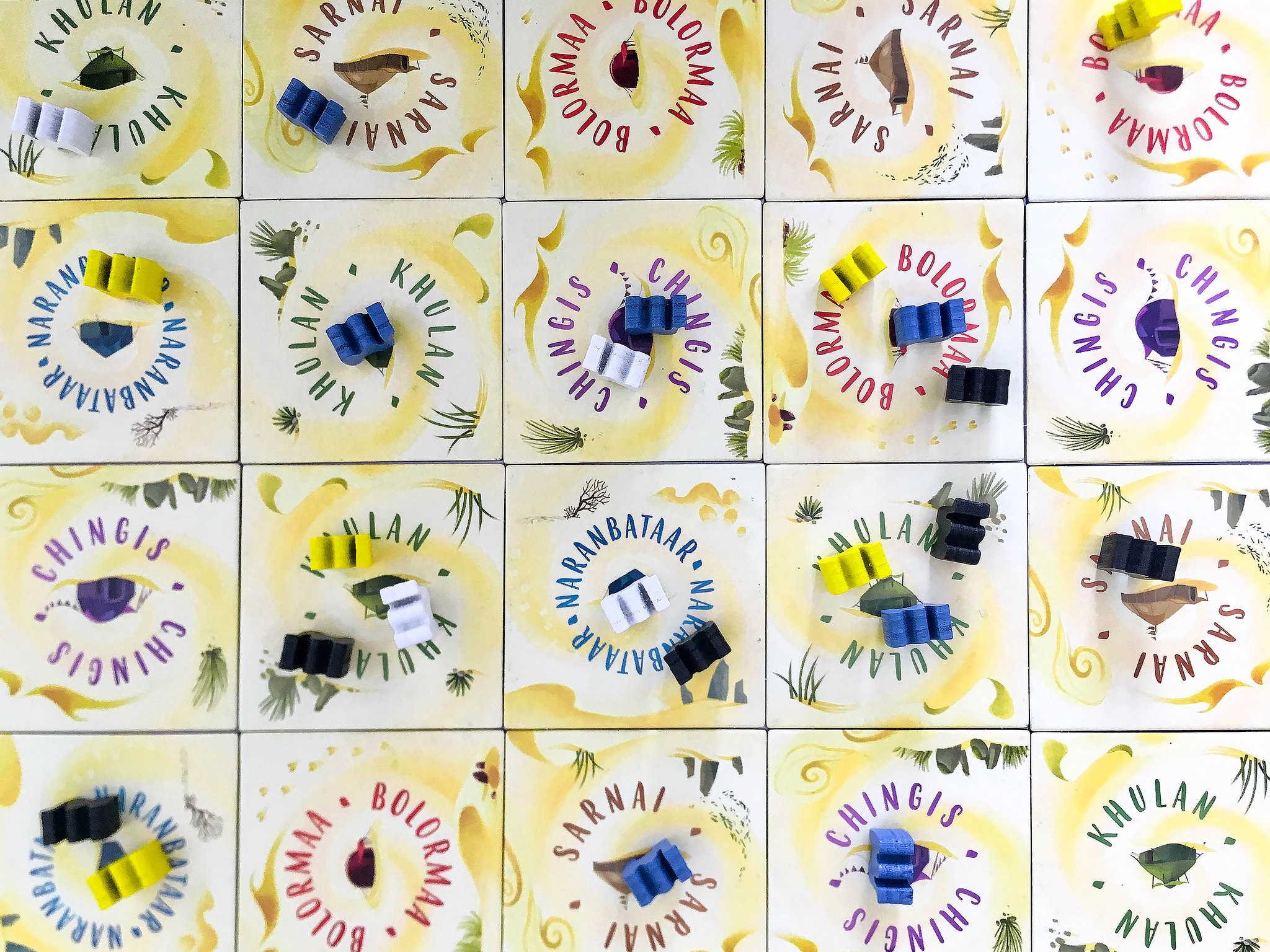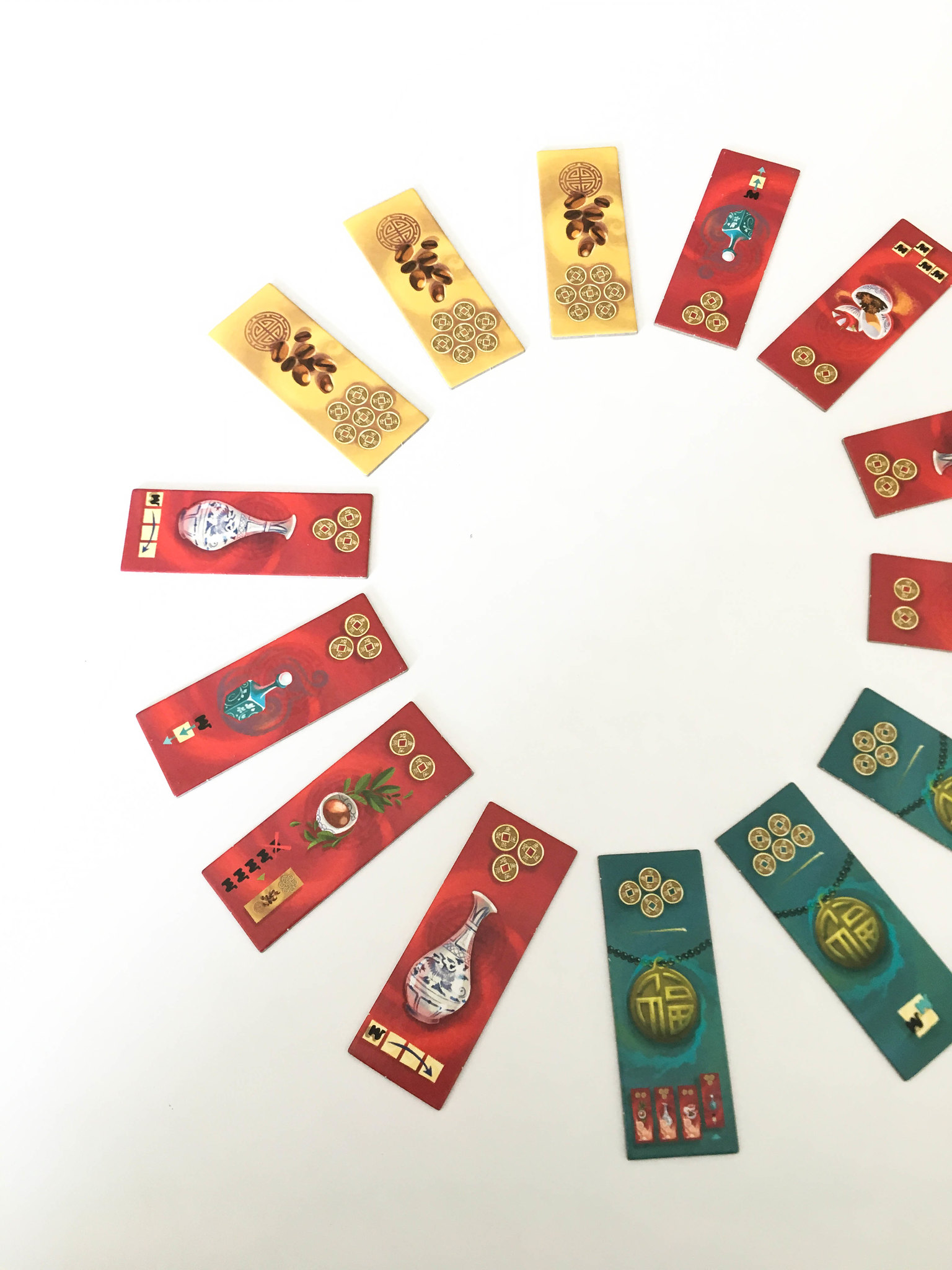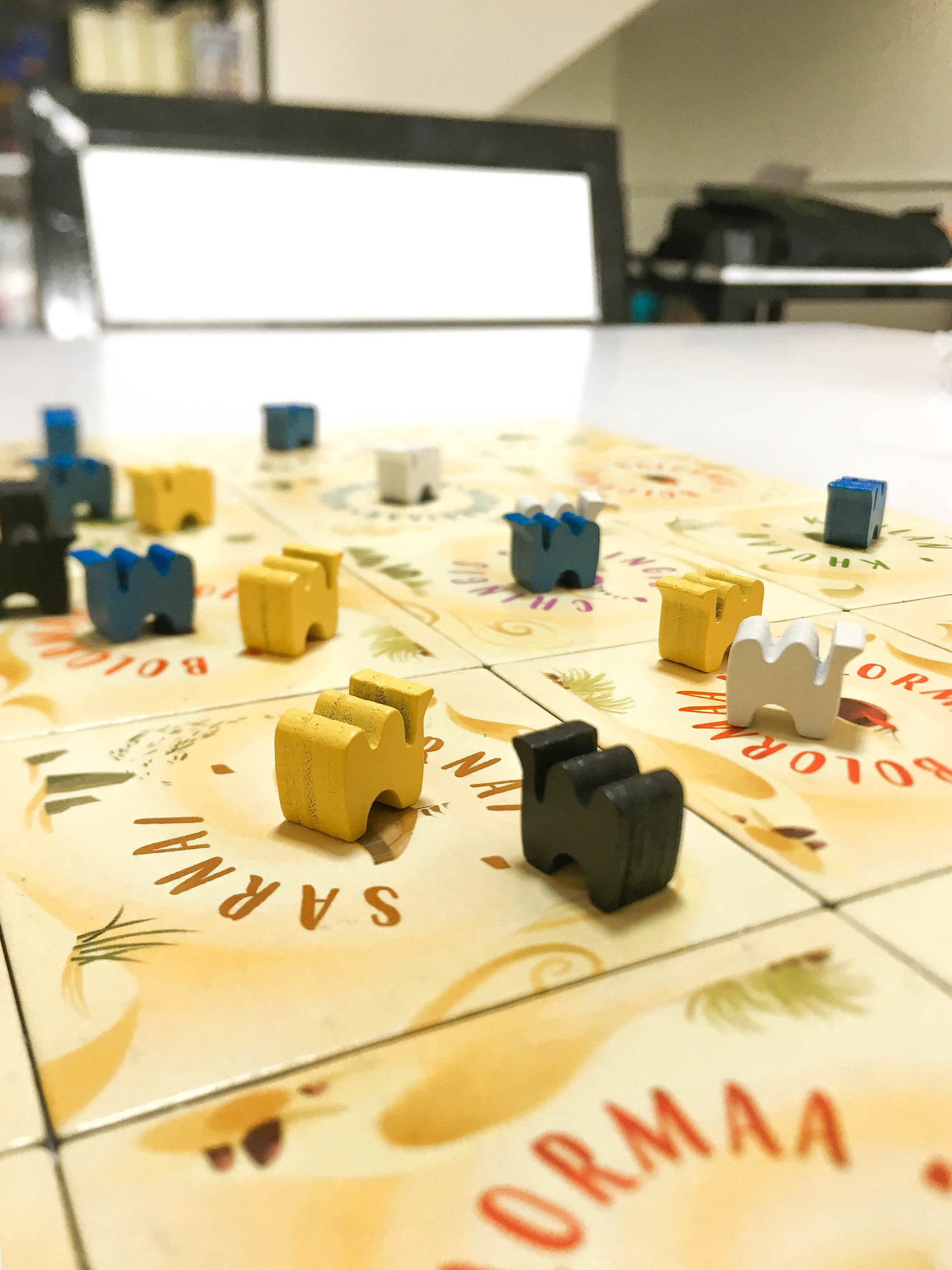Gobi desert is pretty much well-known all around the globe. It’s an arid region that spreads between northern China and southern Mongolia. The pretty yet scary sand dunes of Gobi was brought by Capsicum Games in their board game last year and distributed currently by Don’t Panic Games. Would you be able to survive the desert?
Game overview
Gobi is a board game for 2-4 players. Each player will play as a caravan driver who helps the nomad clans to reunite after they got scattered due to a big storm. As their gratitude, players will get blessing and gifts in return. This tile-placing game lasts for around 30-40 minutes. The number of tiles used in this game is based on the player count.

Players draw and place one tile in turn. Afterwards, he/she adds camels on the adjacent tiles. This represents the routes to connect the nomad tribes. Players cannot place a tile of the same colour adjacent to each other. If players don’t feel like to place the tile he/she has drawn, it can be discarded (and will be counted as -1 point per tile at the end of the game).
Check if there’s any route connecting two tribes; take the available gift and take the camels that created the route. If the route consists of 5 camels or more, players can choose to take coffee instead. These gifts will contribute points to the players. After all of the tiles are placed, the game ends; whoever has the most points then wins the game.
Experience and opinion
Gobi is pretty much simple to play; you get your shuffled tiles and in your turn, you have to either put the drawn tiles on the board or discard it if you cannot place it or even because you want to put one camel anywhere on the available tiles. This is a very powerful move if you use it at the right moment. It’s situational for sure, but if you can throw a point to gain more, why not?
Players need to build the network/route between the same tribes (represented by colours) in order to gain points. All players will try their best to connect between two furthest tiles together because of the coffee. It contributes the most points although it does not give any effect.
Meanwhile, other tiles may give more points if the owner can fulfil the conditions before the game ends; some of them also give a unique non-reusable skill to help the player to win the game. You have choices which one you want to pursue to gain more points based on the situation and your playstyle.
Players need to build the network/route between the same tribes (represented by colours) in order to gain points. All players will try their best to connect between two furthest tiles together because of the coffee.
It contributes the most points although it does not give any effect. Meanwhile, other tiles may give more points if the owner can fulfil the conditions before the game ends; some of them also give a unique non-reusable skill to help the player to win the game.
You have choices which one you want to pursue to gain more points based on the situation and your playstyle.
Using tiles means the modular board will always deliver new game experiences. However, the mechanic will stay the same so perhaps it might be dull after more than 3 sessions. In addition, you rely on your luck quite a bit more than I expected. The first aspect is the shuffled tiles distributed among the players. The second one is the available gifts to gain after resolving the routes. This makes the game more of a tactical encounter rather than a strategical one. Players need to adapt to each situation.
Overall, Gobi is pretty enjoyable with 3-4 players. It does not take long to set up and to play. The downtime to teach this to the new players is pretty minimal so they will not lose interest. It’s another very good gateway game, by the way. The simplicity will attract more casual players or those who seek for a family game.
Conclusion
Gobi is a simple tile-placement board game for 2-4 players. It is pretty direct: you build the route from point A to point B and you score the points. The game is more tactical rather than strategic. It will be an enjoyable addition for family and casual players. The modular board offers replayability but not that much. Gobi would still be a good investment for your collection.
I am a full-time food technologist during weekdays. However, when the calendar hits weekends, I transform into an avid board gamer. I am a hardcore Legend of the Five Rings (L5R) LCG player from Fantasy Flight Games (FFG). Current hobby: buying board games. My shelf of shame’s list is getting longer, thanks to you, Kickstarter.








